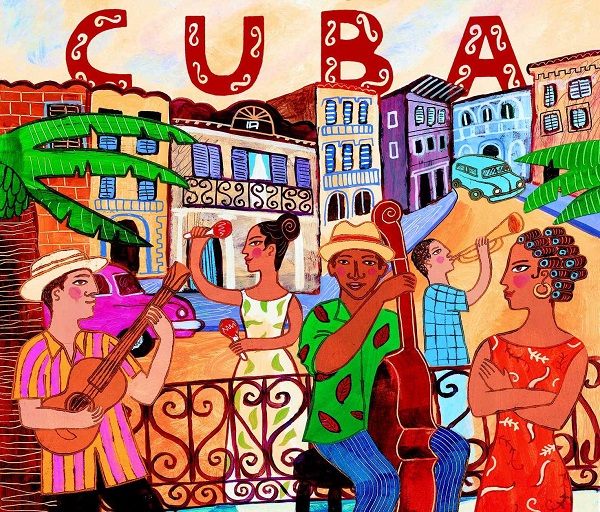12.13.1 María Felicia Pérez Arroyo

María Felicia Pérez Arroyo is a Cuban choir director, singer, and teacher. She received her academic training at Havana’s leading musical institutions. She studied at the Amadeo Roldán Conservatory (Rastro No. 1 and Espada, Centro Habana, Havana City) and graduated from the secondary level with a specialty in choral conducting at the National School of Art (120th Street between 9th and 13th, Cubanacán, Playa, Havana) in Havana. In 1976, she entered the Franz Liszt School of Music in Weimar, Germany, where she completed her studies around 1980.
Upon returning to her native land, María Felicia worked as a professor at the National School of Music (120th Street between 9th and 13th, Cubanacán, Playa, Havana). During this period, she also served as a choral conducting instructor for the presidency of the Cuban Choir Association. She also conducted choirs composed of amateurs and others composed of music students from various schools, and served as a judge for numerous national choral competitions and festivals, including the Santiago de Cuba Choir Festival.
She is one of the professionals who developed musical study programs for various subjects to train increasingly capable musicians.
He founded his own choir in 1987, called the Exaudi Chamber Choir, whose name means “Listen!” It is made up of professional musicians from various fields with singing talent, graduates of Cuban art schools.
Choral works from diverse origins—European, Latin American, and Cuban—dating from the 15th century to the present day and enjoying significant relevance in the world of choral music are included in the group’s vast repertoire.
María Felicia, along with Exaudi, has performed on numerous stages around the world, giving successful concerts and participating in international choral music festivals, earning important awards in countries such as Canada, Mexico, the United States, Venezuela, Germany, Spain, Hungary, and Bulgaria.
In many of these nations in the Americas, Europe, and Oceania, he has taught workshops, courses, seminars, and master classes on Cuban choral music and choral conducting at universities, conferences, and other venues; he has also served as a judge at choral events.
In 1998, María Felicia Pérez joined the choral conducting faculty at the Cuban University of the Arts, Instituto Superior de Arte de Cuba (ISA) (1110 Calle 120 between 9th and 13th, Cubanacán, Playa, Havana). Her extravagant choral quality and sensitivity are characteristics that clearly define María Felicia’s work and musical direction.
He collaborated on the CDs Misa cubana and Salmo de las Américas by Cuban composer José María Vitier. The latter recording was nominated for a 2000 Latin Grammy in the Classical Music category.
María Felicia’s discography with Exaudi includes three albums with music by Cuban composer Esteban Salas. Three CDs with Baroque music from Peru and Bolivia. A phonogram consisting of works by Spanish Baroque composer Carlos Patiño (1600-1675). Two CDs with arrangements of popular music and concert songs from Cuba and other Latin American countries. A CD of American Songs and Rhythms. A CD with sacred a cappella works by 20th-century Spanish-American composers.
Together with Exaudi, he has received the following awards: First Prize at the International Choir Competition in Debrecen (Hungary, 1990); First Prize in Folklore, Third Prize in Polyphony, the Grand Prix and the Audience Award in Tolosa (Spain, 1992); Grand Prix Européen de Canto Chorale in Varna (Bulgaria, 1993); First Prize at the Harmony Festival in Lindennolzhausen (Germany, 1993); Third Prize in the “International Excellence” category in Marktoberdorf (Germany, 1993); First Prize in Folklore and the Prize for the best interpretation of a Basque work in Tolosa (Spain, 1993); First Prize in Polyphony in Torrevieja (Spain, 1994).
Among the awards María Felicia Pérez has received for her hard work as a professional are the First Degree “Félix Varela” Order and the Distinctions “For Cuban Education and National Culture.”








